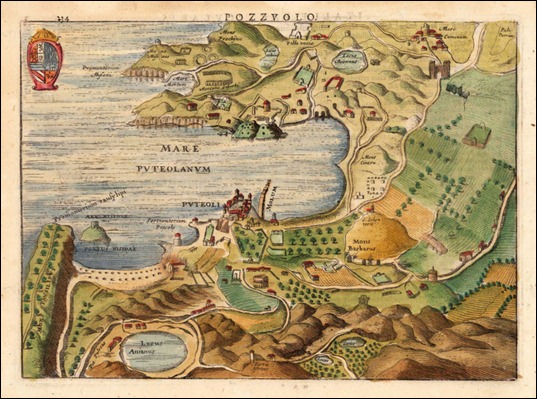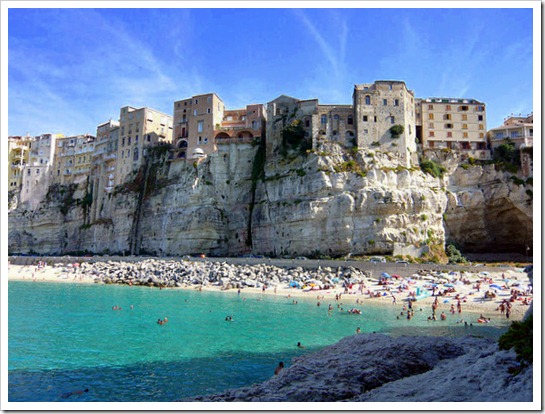Di Dove Sei? Posted by Geoff on Aug 8, 2014 in Grammar, Italian Language
Di dove sei? (where are you from? informal) or di dov’è? (where are you from? formal, or where is he/she from?) is a question that you’ll often be asked, or want to ask when you visit Italy. For Italians provenienza (provenance/origin) is very important, and is certainly much higher up the list of things that people want to know about you than the tedious question che lavoro fai? (what job do you do?) that tends to be so important in England, and many other northern European cultures.
So, how do we answer this question in Italy? Well, we have two choices: in my case I would answer either ‘sono inglese’ (I’m English n.b. it’s not necessary to use a capital letter at the beginning of nationalities) or ‘vengo dall’Inghliterra’ (I come from England). If I wanted to be more precise I could say ‘sono di Bury St. Edmunds’ (I’m from Bury St. Edmunds). Notice that for towns and cities, we use either sono di, e.g. sono di Bury St. Edmunds (literally: I’m of Bury St. Edmunds), sono di Firenze (literally: I’m of Florence), or vengo da, e.g. vengo da Firenze (I come from Florence) etc. For countries and regions, on the other hand, we only use vengo da plus the article, e.g. vengo dagli Stati Uniti (I come from the United States), vengo dalla Toscana (I come from Tuscany)
 |
| Puteoli (Little Wells) was the ancient name for Pozzuoli near Napoli. The inhabitants of Pozzuoli are still known as Puteolani. |
If I ask the same question of Serena she will reply vengo dall’Italia (I come from Italy), or sono italiana (I’m Italian feminine). To be more precise she could say sono di Lucca (I’m from Lucca), or sono lucchese (I’m a person from Lucca). In fact in Italy, for every region, city, town and even village there is a way of saying ‘I’m a person from …’. Let’s have a look at some examples of how we express our provenienza in Italian:
Regular Forms
someone from Milano is called milanese
someone from Lucca is called lucchese
someone from Roma is called romano
someone from Perugia is called perugino
someone from Venezia is called veneziano
someone from Firenze is called fiorentino
someone from Palermo is called palermitano
someone from Cagliari is called cagliaritano
someone from Reggio Calabria is called reggino
someone from Parma is called parmigiano (less common parmense)
someone from Reggio Emilia is called reggiano
N.B. words ending in –ese, such as milanese change their ending in the plural, e.g. lui è milanese (he is from Milan), loro sono milanesi (they are from Milan). However, words ending in –ano or –ino, such as perugino, change ending depending on both number and gender, e.g.: Roberta è perugina (Roberta is from Perugia feminine), Michele è perugino (Michele is from Perugia masculine), Roberta e Michele sono perugini (Roberta and Michele are from Perugia masculine plural).
Irregular Forms – some of the most well known examples
someone from Rieti is called reatino
someone from Gubbio is called eugubino
someone from Caltanisetta is called nisseno
someone from Ivrea is called eporediese
someone from Gubbio is called eugubino
Products – a few well know products that take their name from the town or region of origin
Parmigiano Reggiano fatto nella zona fra Parma e Reggio Emilia, lato sud del fiume Po (Parmesan cheese is made in the zone between the towns of Parma end Reggio Emilia, on the southern side of the river Po)
Grana Padano fatto nella Pianura Padana, lato nord del fiume Po (Grana Padano, similar to Parmesan cheese, is made in the Padana plain, on the northern side of the river Po)
Baci Perugina These famous chocolates come from Perugia. The name of the manufacturer is Perugina, and the name of the chocolates translates as Perugia Kisses
La fiorentina is a T-bone steak that weights between 1 and 1.5 kg. It’s probably the most famous dish from Firenze
 |
| Marina è d’origine calabrese … viene dalla Calabria. Photo of Tropea (CC) by simo0082 |
Example Sentences
Marina è d’origine calabrese, ma ora abita in Toscana (Marina is originally calabrese = a person from Calabria, but she now lives in Tuscany)
Paolo è italiano, ma abita da tanti anni in Germania e ha molti amici tedeschi (Paolo is Italian, but he’s lived in Germany for many years and has a lot of German friends)
La madre di zio Luciano era romana e il padre era di Vernazza in Liguria (uncle Luciano’s mother was from Rome and his father was from Vernazza in Liguria)
Luca, che abita qua in Lunigiana, è d’origine napoletana (Luca, who lives here in Lunigiana, is originally from Napoli)
You can find more places with the names of their inhabitants HERE.

Build vocabulary, practice pronunciation, and more with Transparent Language Online. Available anytime, anywhere, on any device.




Leave a comment: